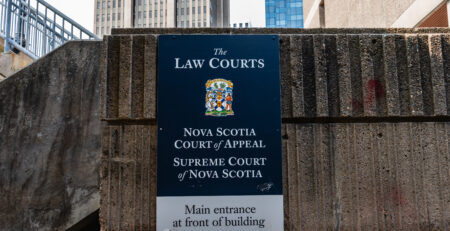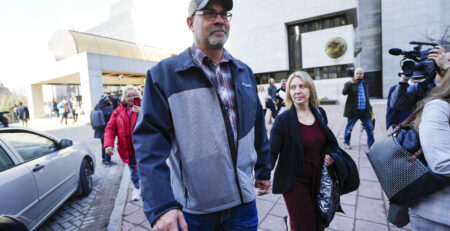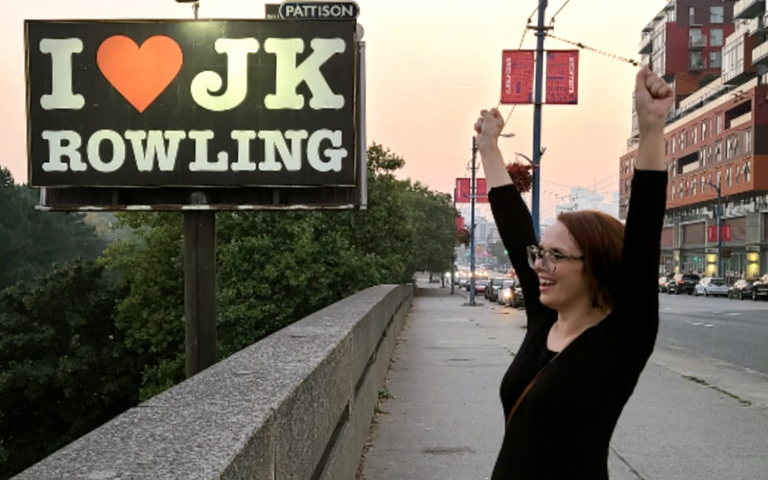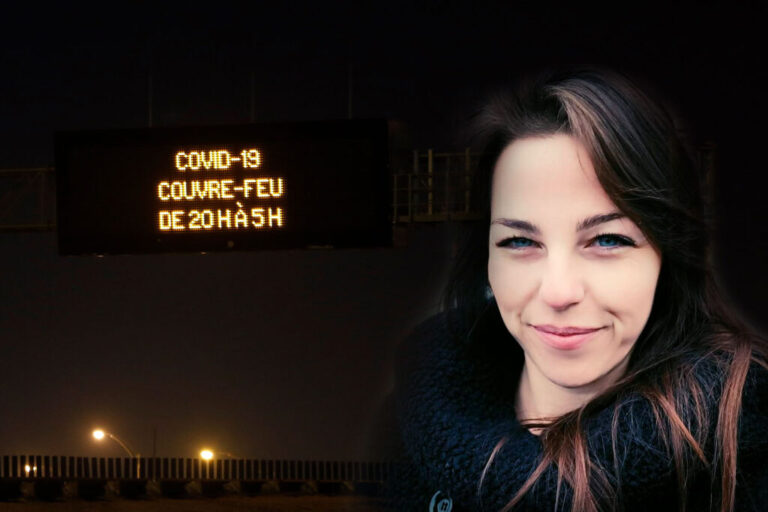VANCOUVER: The Justice Centre for Constitutional Freedoms will be in the BC Court of Appeal on June 6 and 7, in the case of Servatius v. Port Alberni School District 70, at the Vancouver Law Courts at Smithe Street in Courtroom 50. Candice Servatius is appealing the ruling of a lower court that a cleansing (smudging) ceremony held during school hours in a BC public school classroom did not violate her and her children’s right to religious freedom.
In September 2015, mother Candice Servatius received a letter from the principal of John Howitt Elementary School (JHES) in Port Alberni, BC, where her two children attend. The letter informed parents that JHES would be hosting a “Traditional Nuu-chah-nulth Classroom/Student Cleansing” performed by a “Nuu-chah-nulth Member” in the school’s classrooms. The letter did not provide a date for when these cleansing rituals would take place. The term Nuu-chah-nulth is used to describe fifteen related First Nation tribes who live on the southwest coast of Vancouver Island.
The letter from the school described specific beliefs of the Nuu-chah-nulth: “everything is one, all is connected” and “everything has a spirit.” The school’s letter described in detail how the cleansing ritual would “cleanse” the classroom of “energy” and cleanse the students’ “spirits.” The letter claimed that without cleansing, the classroom and even the furniture would harbour negative “energy” and would not be safe until the “energy” was “released.” The letter stated that each student would participate in the cleansing ritual by holding onto a cedar branch while having “smoke from Sage fanned over [their] body and spirit.”
Concerned about what she believed was the explicitly religious nature of the cleansing ritual, Mrs. Servatius went to the school to learn more. She was shocked to find out that this “cleansing ritual” had already taken place in the classroom of her then nine-year-old daughter. Mrs. Servatius had received less than 24 hours of notice from the school, and did not have the opportunity to opt her child out of the ritual.
In January of 2016, Mrs. Servatius learned from her children that a prayer based on First Nations spirituality had been performed at a JHES student assembly, with explicit references to an unspecified “god”. JHES did not notify parents.
School District 70 denied that these religious ceremonies and prayers are violating the religious freedom of Mrs. Servatius and her children, and claims that these are merely “cultural”.
Witnesses for the Attorney General of B.C. and the Nuu-chul-nuth Tribal Council, both of whom intervened in the case, testified during cross examinations that it is not consistent with First Nation’s practice to compel anyone to be smudged against their will, and that it is “unnecessary” to hold smudging ceremonies in classrooms in order to teach about First Nations culture.
Section 76 of the B.C. School Act requires public schools to be conducted on “strictly secular and non-sectarian principles”.
The fact that a religious ritual like smudging might also be “cultural” is irrelevant to whether religious freedom has been violated, according to the Supreme Court of Canada. In Mouvement Laique Quebecois v. City of Saguenay, the court ruled that “the state must neither encourage nor discourage any form of religious conviction whatsoever. If the state adheres to a form of religious expression under the guise of cultural or historical reality or heritage, it breaches its duty of neutrality.”
In Saguenay, an atheist adult won the right to be spared the indignity of being present while City Councilors said a non-denominational prayer that was opened and concluded with the words “in the name of the Father, the Son and the Holy Spirit.” He was not required to participate in the prayer, unlike Mrs. Servatius’ children.
The Saguenay ruling rejected a compromise policy to have the atheist leave the Council Chambers during the prayer, because this exacerbates discrimination: “If he chose to exclude himself from the prayer either by refusing to participate in it or by leaving the chamber, he would be forced to reveal that he is a non-believer… Such interference constitutes an infringement of the complainant’s freedom of conscience and religion.”
In spite of the cultural benefits that might flow from having children say the Lord’s Prayer in schools, courts have interpreted the Canadian Charter of Rights and Freedoms as including a right to be “free from” religion. That means not coercing children or adults to participate in any spiritual or religious prayer, ritual, ceremony or practice.
The violation of religious freedom through the imposition of prayer on children in the classroom cannot be avoided by providing exemptions to excuse some children from participation. The Ontario Court of Appeal in 1988 ruled in Zylberberg v. Sudbury Board of Education that mandated religious practices violate the religious freedom of students and parents, even if students have the right to be exempted from participating in the religious practice.
In Zylberberg, the court ruled that “Peer pressures, and the desire to conform, are notoriously effective with children. Does common experience not tell us that these things are so, and that such feelings might easily, and reasonably, lead some not to seek exemption, and unwillingly conform, or others to seek it, and be forced to suffer the consequences to their feelings and convictions?… The peer pressure and the class-room norms to which children are acutely sensitive, in our opinion, are real and pervasive… Thus the excusal provision in its operation subjects [non-conforming children] to a cruel dilemma. In consequence, even devout children may well avoid claiming their right and simply continue to participate in exercises distasteful to them because of an understandable reluctance to be stigmatized as atheists or nonconformists simply on the basis of their request. … children are disinclined at this age to step out of line or to flout “peer-group norms”. …The requirement that pupils attend religious exercises, unless exempt, compels students and parents to make a religious statement. …the exemption provision imposes a penalty on pupils from religious minorities who utilize it by stigmatizing them as non-conformists and setting them apart from their fellow students … the conclusion is inescapable that the exemption provision fails to mitigate the infringement of freedom of conscience and religion.”
The appeal factum of Mrs. Servatius can be read here.








